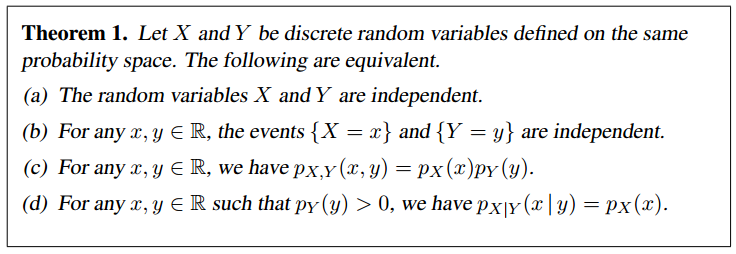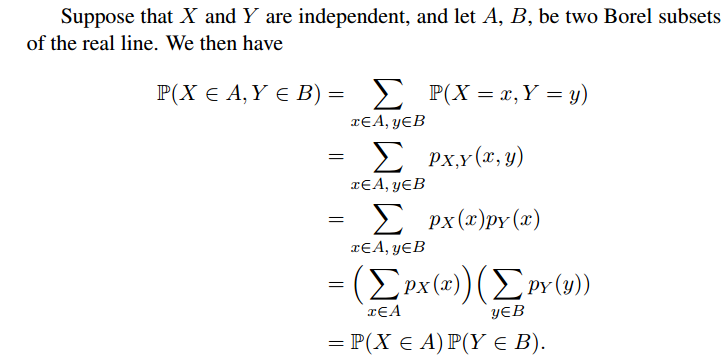←
Six Sigma
Types Of Random Variable
Independence of discrete random variables:
For a finite number of discrete random variables, independence is equivalent to having a joint PMF which factors into a product of marginal PMFs.

Proof: The fact that (a) implies (b) is immediate from the definition of independence. The equivalence of (b), (c), and (d) is also an immediate consequence of our definitions. We complete the proof by verifying that (c) implies (a).

- Since this is true for any Borel sets A and B, we conclude that X and Y are independent.
- We note that Theorem 1 generalizes to the case of multiple, but finitely many, random variables. The generalization of conditions (a)-(c) should be obvious. As for condition (d), it can be generalized to a few different forms, one of which is the following: given any subset S0 of the random variables under consideration, the conditional joint PMF of the random variables Xs, s ∈ S0, given the values of the remaining random variables, is the same as the unconditional joint PMF of the random variables Xs, s ∈ S0, as long as we are conditioning on an event with positive probability.